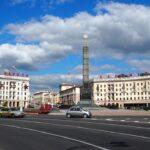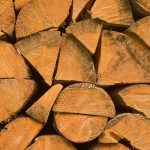
In 2024, FSC and Assurance Services International (ASI) launched a transaction verification (TV) loop on FSC-certified birch wood panels in China and Europe. The preliminary results from the first phase of the TV loop – data collection and analysis – reveal a number of integrity risks in certified birch wood panel supply chains. The risks will be evaluated in the next stages of the investigation. The TV loop captured 3,436 transactions that took place in 2023, as reported by 665 certificate holders with physical possession of certified material from 18 countries in the Eurasian region. They are Bosnia and Herzegovina, Bulgaria, China (including Hong Kong), Latvia, Romania, Slovakia, Croatia, the Czech Republic, Estonia, Georgia, Greece, Hungary, Lithuania, Moldova, Poland, Slovenia, Serbia, and Ukraine.
Some of the key findings and the integrity risks they pose to certified birch wood panel supply chains are:
- Around 74 % of the certificate holders reported zero transactions (no purchases or sales) of birch products, many of which were from China. This is indicative of a potential risk because there are multiple stakeholder reports alleging a large supply of birch products originating in China.
- Concerning cases of potential volume mismatch: some certificate holders reported purchases while their suppliers reported zero sales. Additionally, some certificate holders declared the purchase or sale of specific (‘zero transaction’) Betula species that were not within the suppliers’ certificate scope or geographic region.
- A large volume of birch logs purchased from Ukrainian forests may potentially originate from the conflict area. In light of the current suspension of the FSC certificates in specified conflict zones, the reported volume of domestic purchases from Ukrainian forest management units and the volume of wood panels exported from Ukraine are a cause for concern.
- None of the certificate holders participating in this TV loop declared any purchase or sale of birch from Russia within the scope of their FSC certification. However, potential mismatches between the volume of wood purchased and sold through the supply chain may be a result of non-certified wood (including that from Russia) entering the certified supply chains.
An investigation by the European Commission has confirmed the circumvention of anti-dumping duties by firms buying plywood from Turkey and Kazakhstan. The investigation found evidence of laundering of finished Russian plywood – a breach of EU sanctions put in place following the Ukraine invasion.
Inspectors also confirmed Turkish and Kazakh firms are using Russian raw materials to make birch ply for sale in Europe. The European Commission investigation found evidence of plywood made in Russia being simply laundered and re-labelled as of Kazakh or Turkish origin, something which should be of interest to authorities tasked with enforcing EU sanctions, both at EU and Member State level. Though not covered by sanctions, these sales are in clear breach of the EU Timber Regulation (EUTR), a law meant to halt illegal wood use in Europe.
Today Earthsight, which submitted evidence to the EU’s investigation, has filed EUTR complaints pertaining to 31 firms across nine member states whose suppliers were confirmed by the EU to be using Russian raw materials.
The TV loop aims to identify and take action against instances of false claims or other violations of FSC requirements.
The scope of this Eurasia birch wood panels TV loop is:
- Geographic areas: China and central and eastern European countries (Bosnia and Herzegovina, Bulgaria, Croatia, Czech Republic, Estonia, Georgia, Greece, Hungary, Latvia, Lithuania, Moldova, Poland, Romania, Serbia, Slovakia, Slovenia, and Ukraine).
- Product type: Plywood
- Species: Birch (Betula)
A new Greenpeace report, Nature Crime Files – Romania – Greenpeace International, followed the traces to the suppliers of furniture companies, such as IKEA. By closely examining the entire supply chain, from logging sites to wood depots, including scrutinising transport permits with geolocation attributes, and visiting processing facilities Greenpeace CEE found old-growth or other high conservation value destruction linked to at least seven different IKEA suppliers in Romania. Investigations identified at least 30 IKEA products, and some of IKEA’s well-known furniture, originating from these producers, raising a concern that wood from old-growth forests could ultimately end up in homes all over Europe and beyond.
In response to the energy crisis caused by the war in Ukraine and related European Union sanctions, Hungary’s government has issued a decree prohibiting energy sources, including firewood, from being taken out of the country, the minister of agriculture said on Tuesday. In the interest of energy security, the government can regulate and restrict the amount of firewood that can be taken abroad and exercise a pre-emptive right to its purchase, István Nagy said in a statement.
Click here to access the Global Illegal Logging and Associated Trade (ILAT) Risk assessment tool and to download the Forest Trends User Guide describing the functionality of the ILAT Risk Data Tool.
Click here to access the Cattle Data Tool.






